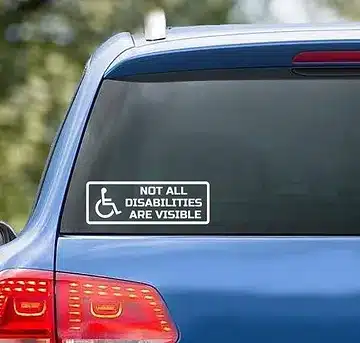
Sadly, people with invisible disabilities often face harassment from people who assume that they are “cheating”.
Not too long ago, I attended the open practice session for Roger Federer (a top level tennis player) with a friend of mine, Ness, who is deafblind. Just by lining up to get in to the arena, it was very evident how different we were treated based on other people’s perceptions.
Ness, upon approaching the gates of the arena with her guide, was forced to find her own way around and was not given priority access or treatment as usually offered by this arena for people with disabilities. This was even after approaching members of staff and explaining her disability. However, this completely changed once I approached and joined her at the front of the arena. Once I was seen in my wheelchair, I was immediately spoken to and asked if I needed assistance. I was then escorted to the front of the priority line in order to skip the general public queue.
What gave me the right to skip the queue over those people
Despite both having disabilities, we both had very different experiences in the way we were treated. We both had reasons for needing to avoid being in the hustle and bustle of the large crowd, yet only I was afforded the accommodation of being able to easily skip the queue.
I often think about those who perhaps had invisible disabilities that day who possibly can’t stand for long or fatigue easily. What gave me the right to skip the queue over those people who would perhaps benefit from that accommodation more than me?
It is important to acknowledge that not all disabilities are visible. People with invisible disabilities need just as much understanding and accommodation as people who have visible disabilities. If someone approaches you and discloses a disability, please respect them and listen to how you can help!
